Hey! Are you also eager to know the role of a music producer? Stop scrolling. In this post, we will discuss What a Music Producer does. Music Production is simply the process behind the music you love to listen to. The production involves writing, recording, mixing, and finalizing audio. Also, you must know the best music distribution services in 2025 you must use.
Production is not as easy as it seems, one should have technical skills as well. Whether you are an aspiring artist or a music enthusiast, there might be various questions in your mind. No need to worry anymore, because we are here to help you out. In this post, we have covered all you need to know. Without further discussion, Let’s dive deep into the topic.
How Is Music Produced?
VIA PINTEREST
First of all, you might know how music is produced. So, let’s consider how music production is done. The process of music production includes several measures, from pre-production to recording to distribution. Let’s understand each step of the production process. Here we go.
- Pre-Production
- Writing
- Recording
- Editing
- Mixing
- Mastering
- Copywriting
- Marketing and distribution
Pre-Production
As the term implies, Pre-production is the planning for the piece of music. It includes generating ideas, songwriting, and planning the type of song, target audience, and structure of the piece. Moreover, it involves selecting instruments suitable for song tunes, selecting artists, and other team members. One must outline the budget estimate required for producing the music piece.
Writing
Songwriting is the art of creating the song lyrics. Some singers can write their pieces, while some professional songwriters write for artists. Some producers are also good in songwriting. Other than that, singers and songwriters sometimes co-wrote the songs. Songwriting includes composing melodies, harmonies, and lyrics.
Recording
Recording is an important part of music production. It starts with studio setup, arranging instruments, and microphones. The producer ensures the audio quality, instrument efficiency, and much more. He better understands sound for particular artists and selects that suit his musical style.
Editing
Next up, arranging and editing the piece comes into play. Editing a music piece involves adding or removing background sound/noise and improving the recorded music. In fact, several editing apps make the task easy and fast as compared to manual editing. These apps make your music more appealing and likable. They help you sound professional. Digital Audio Workstation (DAW) is one of the most popular apps.
Mixing
Mixing is a process that includes combining all elements. All parts of the music are mixed, eliminating unwanted noises to get a stereo track and make it in suitable file formats like AIF, MP3, and WAV. Mixing audio also includes balancing frequencies. Mixing techniques like Planning, Surround, Level Adjustment, Muting, and Stereo are also used to get more professional audio.
Mastering
Mastering is an essential process of sound production. It involves creating and transferring the recorded finalized music to data storage devices. It’s called the master copy of the music from which all copies will be created.
The process of audio mastering differs based on the unique demands of the audio being processed. It involves editing, defining track gaps, altering volume, fading in and out, noise reduction, and enhancement techniques.
Copywriting
After mastering the recorded music, the next step is copywriting. Copywriting is the process of having the exclusive rights of your recorded music by registering it. With the use of copyright, you protect your work from being used by others unlawfully or without consent.
Marketing and Distribution
The final step in the production process is Marketing and Distribution. Marketing includes developing a distribution plan for the music and selecting the appropriate platforms for it. Promoting the music piece is equally important.
However, marketing strategies changed in the digital distribution generation. Several digital platforms like Spotify, and AppleMusic allow your music to reach the audience globally.
What Does a Music Producer Do?
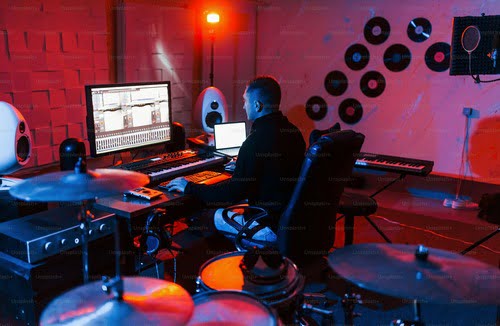
VIA PINTEREST
We have discussed how the production of music is performed, now let’s understand what a music producer does. Music producers work mostly at recording studios. When it comes to creating musical content, the producer makes artistic and creative choices that fulfill the objectives of the label and the performer.
Maintaining schedules and budgets, meeting deadlines, finding singers, musicians, studios, and engineers, supervising other personnel requirements, and editing are some of the additional responsibilities.
Moreover, a music producer performs tasks like Ideas collecting, song composition, selecting session musicians, suggesting modifications to song arrangements, managing sessions, audio mixing, and audio mastering.
What skills one must have to become a producer?
Now, we will consider the primary skills a music producer must possess. Skills are essential for a particular role. To become successful, you should have the necessary skill of the field. Same applied to music producer role. Let’s consider the skills of a music producer. Here is the following list.
- Creative thinking
- Songwriting
- Tuning Instruments
- Audio Engineering
- Session Management
- Software Proficiency
- Adaptive to Growing Technology
- Budget Management
Which Equipments Required for Production?
Music Production requires different equipment. From systems to audio plugins to controllers, here are the main equipment needed for producing music. Production can’t be done without the necessary pieces of equipment. There have been also several advancements made in the industry. Let’s understand them one by one.
Computer, Tablet, or Smart Phone
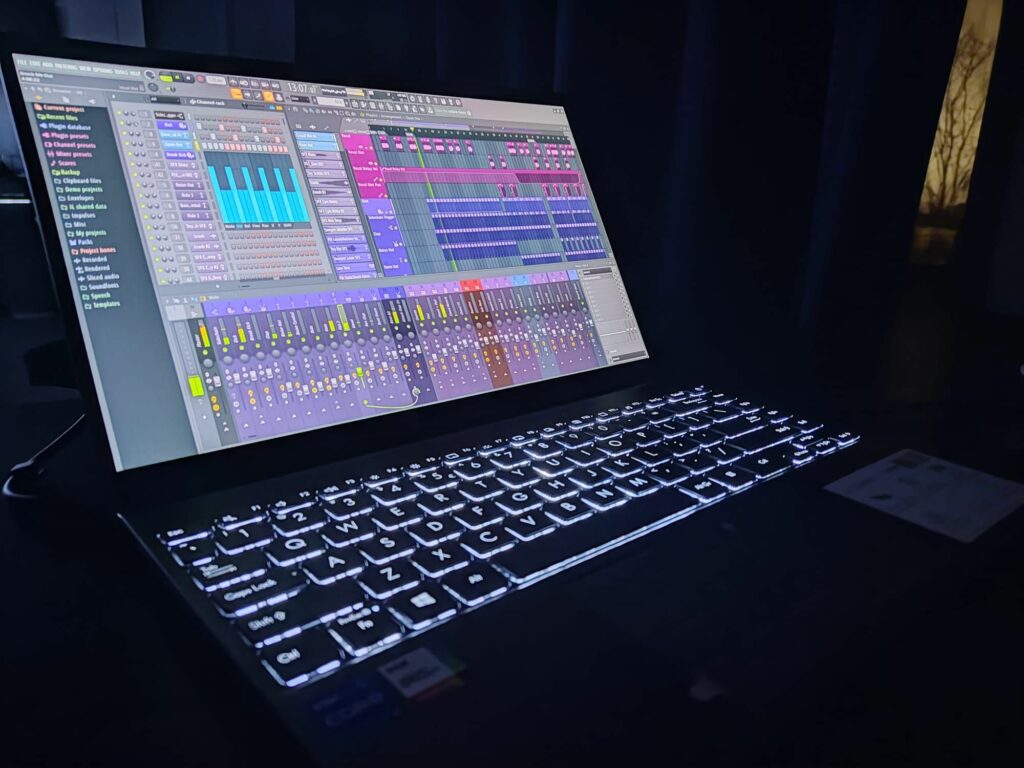
VIA PINTEREST
For music production, one must have a computer, smartphone, or tablet. A desktop computer is the best device to record, edit, mix, master, and produce music. However, music production can be done with iPads, phones, and tablets. It is easy and convenient to use them and get all the tools to send them to the PC for further processing.
Audio Interface
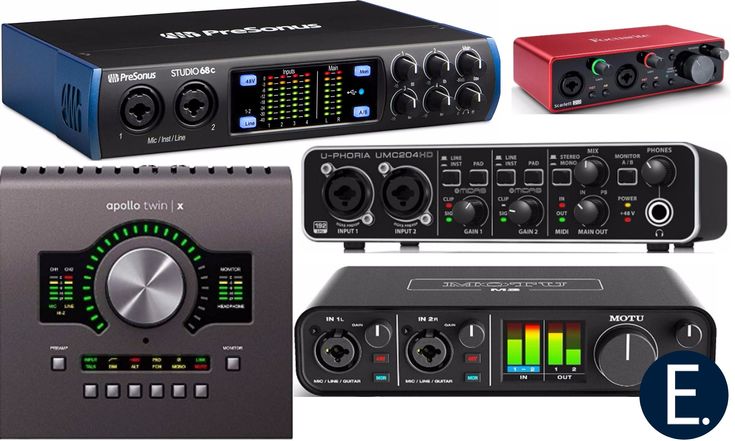
VIA PINTEREST
An audio interface is one of the important hardware elements that provides the connection for high-quality music. It translates audio signals from a source to make it understandable to computers and vice versa. An audio interface is a solution to high-quality audio and plays a significant role in the connectivity of the music elements.
DAWs
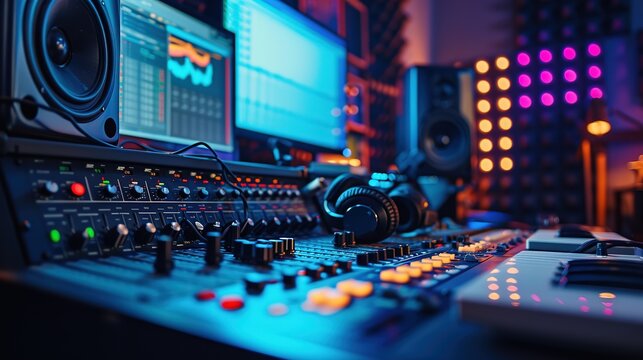
VIA PINTEREST
Next up, is the main component in the production process. Digital Audio Workstation(DAW) software allows audio recording, production, and editing. There are different DAWs available like Computer based-DAWs, and Smartphone based-DAWs. They have also changed over time, now plugins are also used.
Audio Cables
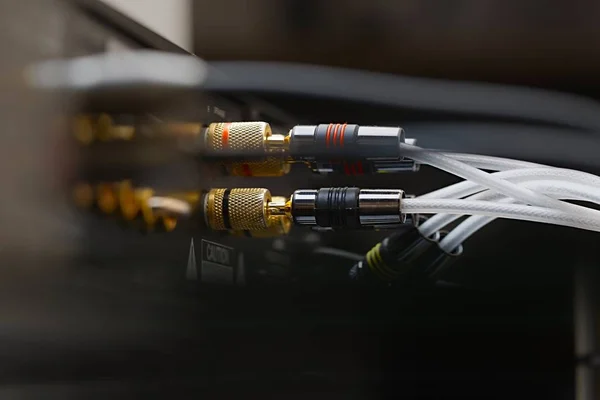
VIA PINTEREST
Cables play the medium for affixing your musical instruments. They are called jacks or instrument cables. These cables offer a secure connection and prevent signal degradation. Here are some types of instrument cables you should know.
- XLR Cables
- TRS
- Hart Cables
- Speakon
- RCA Cables
- Shielded Cables
- MIDI Cables
Audio Plugins
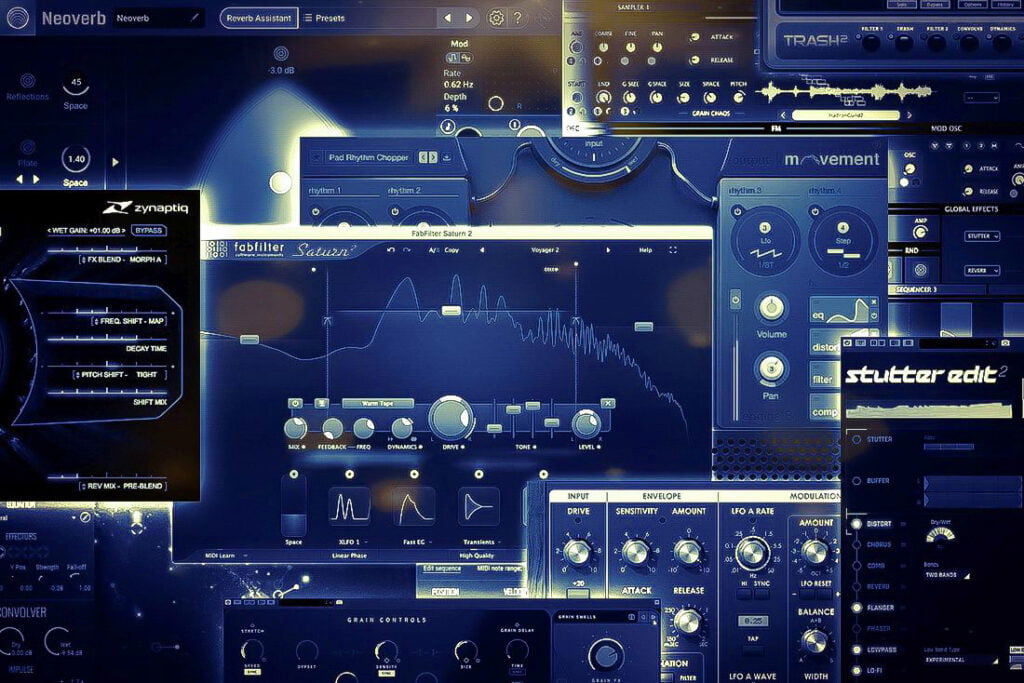
VIA PINTEREST
Audio plug-ins are software programs used to increase the audio functions in a system. These add-ons are easy to use. You can add or remove them according to the requirements. Some of the most popular audio plugins include:
- Pitch Correction Plug-Ins
- Noise Reduction Plug-Ins
- EQ Plug-Ins
- Compressor Plug-Ins
- Reverb Plug-Ins
- Saturation Plug-Ins
- Chorus & Exciter Plug-Ins
Microphones

VIA PINTEREST
Microphones are an essential part of music production. It converts music into electrical signals. They are connected to a preamplifier before sound recording. A variety of microphones are available in the market. Condenser microphones and Dynamic microphones are the most popular microphones widely used. Lavalier is also an example of a hands-free microphone.
Virtual Instruments
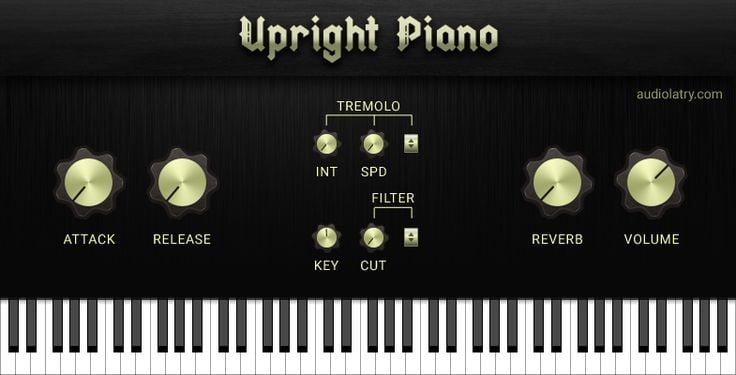
VIA PINTEREST
Virtual Instruments are generally the software-centric counterparts of traditional hardware-based instruments. There is a vast range of accessible hardware that can be plugged into your computer or accessed over a network. Virtual instruments are available in free and paid versions so that artists or recorders can choose according to their needs.
Headphones and Monitors
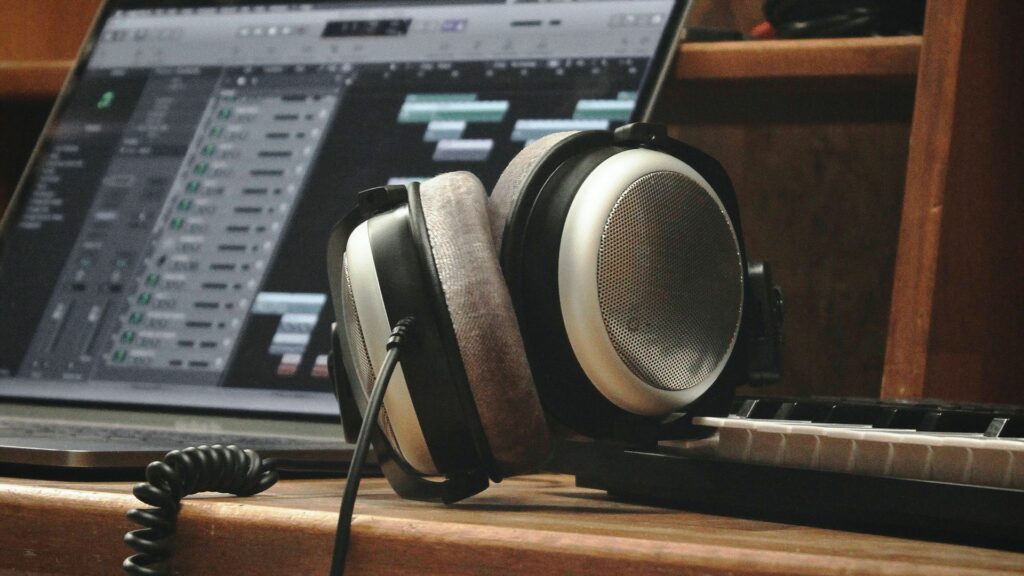
VIA PINTEREST
Headphones and monitors are also important equipment for music production. A producer can perform sound evaluation with the help of studio headphones and monitors.
Studio headphones allow the recorder to better assess the quality of music and detect the nuances in the mix. They offer sound isolation and flat-frequency responses. Headphones play a vital role in mixing, monitoring, and editing recorded music.
However, Studio monitors are used in professional audio production. They provide neutral and accurate sound representation. A producer or artist uses monitors to check the quality of music at different levels of volume.
MIDI Controllers
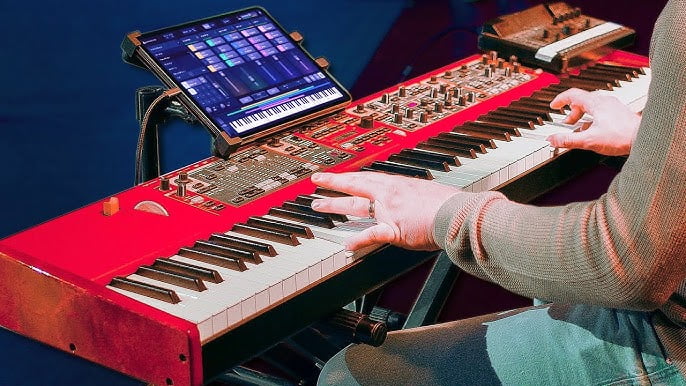
VIA PINTEREST
MIDI Controllers produce Musical Instrument Digital Interface data and transmit it to a MIDI-compatible sound module/synthesizer. It can be used to control software and hardware. Keyboard MIDI controllers and DAW controllers are the main types of MIDI Controllers.
How much does a Music/Record Producer earn?
Do you know how much a music producer makes per year? Well, it depends on the experience and influence a producer has. Successful producers are making big amounts. The average salary of a music producer is somewhere between $53,927 to $59,120 per year. However, it can vary for different locations and experienced hyped producers.
How do you become a Music Producer?
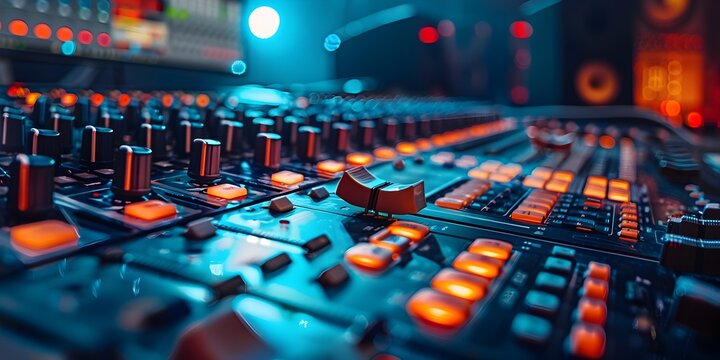
VIA PINTEREST
Whether you are an aspiring music producer or a curious person to know how to become a Music Producer. We have covered you. Let’s understand the steps you should take to become a successful producer. It requires dedication and patience to achieve the aim.
To become a music producer, you must master the tools. Tools are the vital elements of music production. Without them, one can’t imagine producing music. If you master the tools in the beginning, it will be easier for you to perform flawlessly.
Training and Certification
Though many artists and producers are self-made. Proper training and certification will provide you with a better roadmap for your career. You will start from the basics that form the foundation.
Moreover, a solid knowledge of fundamentals to advanced will help you to stand out in the crowd. You will also meet people from the same field. Degree and Certification add value to your personality.
Gain Experience
After training and certification, you must head towards gaining experience. You can start with internships and apprenticeships. You will have some experience and based on that you can start taking on projects. Find out the latest music events and try to get the work done. Additionally, practice and experience will make you more confident to take on bigger projects.
Build and Grow your network
It’s important to build your network with successful artists to improve your thoughts and will to take action. Because we grow better in a good circle. Those who established themselves will give you guidance for your path. Nonetheless, you will be influenced by them. Attend events and try to reach artists, producers, and other influencers, it will also boost your confidence.
Know the latest Trends and Technology
You must know the latest trends and technology. Advancements made things better and easier over time. When it comes to music, it has evolved. Looking back, in earlier times, things were not as easy as they are now. Every advancement in instruments and technology amazed us. Always try to learn new instruments, and techniques and know the trends.
Make a portfolio
When you gain some experience, be it a few projects you have to promote it as well. Suppose you have done several projects, but how would people know about your skills? Here, having a portfolio comes into play. Build a portfolio and let them see what you have done before. A portfolio will showcase your previous works, clients will trust you and you might get a deal with them.
Social media has more power than any other way of promoting. You should know how to promote your work on different social media platforms. Further, personal branding and promoting your projects can make you successful, if you use the right strategies. Instagram, Facebook, and Twitter are some of the most popular platforms.
Hope this post was helpful to you and you got all the answers regarding what a music producer does. Don’t forget to like and share the post. Follow Siachen Studios for more interesting updates.
The post Behind the Beats: What Does a Music Producer Do? appeared first on Siachen Studios.
------------------------
By: Shraddha Sisodiya
Title: Behind the Beats: What Does a Music Producer Do?
Sourced From: siachenstudios.com/blog/what-does-a-music-producer-do/
Published Date: Sat, 28 Dec 2024 06:30:00 +0000
Read More
Did you miss our previous article...
https://edmmusic.news/artists/15-famous-youtubers-who-appeared-in-movies
 FestivalsMusicNew ReleasesArtistsFashion & ClothingVideosPrivacy PolicyTerms And Conditions
FestivalsMusicNew ReleasesArtistsFashion & ClothingVideosPrivacy PolicyTerms And Conditions
